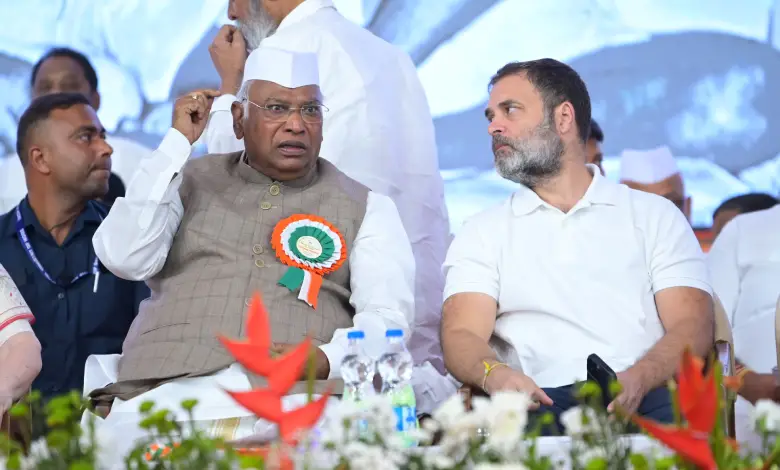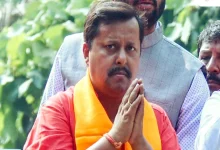“Modi Might Sell the Country One Day”: Kharge Slams PM at AICC in Ahmedabad

In a sharp critique of the Modi government, Congress President Mallikarjun Kharge on Wednesday accused Prime Minister Narendra Modi of undermining the nation’s economic structure by promoting monopolies and privatizing public assets. Speaking at an All India Congress Committee (AICC) gathering in Ahmedabad, Kharge warned that continued government actions could lead to a scenario where “Modi himself will sell this country.”
Kharge alleged that the ruling government is systematically handing over public properties to private entities, dismantling the public sector framework established by leaders like Jawaharlal Nehru. “They are selling the public sector piece by piece to benefit their allies. If this continues, the day is not far when Modi will sell the entire country,” he said, voicing concerns over job scarcity and weakened reservations for the Economically Weaker Sections (EWS).
The Congress leader further accused the Centre of centralizing power across institutions and influencing key democratic mechanisms. “The election system is also under their control. The government is interfering in every institution and asserting its dominance across the board,” Kharge claimed, also hinting at election-related irregularities.
He took a strong stand against the use of Electronic Voting Machines (EVMs), highlighting that many developed nations have abandoned them in favor of paper ballots. “EVMs are no longer trusted globally. We need to rethink our system. Our youth will eventually rise and demand ballot papers,” Kharge said, underlining the public’s growing concerns around electoral transparency.
Touching upon international trade issues, Kharge criticized the government’s silence on the United States imposing a 26% tariff on Indian goods. He said that despite raising the issue in Parliament, the government refused to engage in any discussion.
Kharge also accused the BJP-led administration of using Parliament for communal and diversionary debates while avoiding real public issues. “They stretch communal debates late into the night but resist serious discussions on crises like Manipur. When we requested a proper debate, the government refused, revealing their intent to suppress accountability,” he added.




